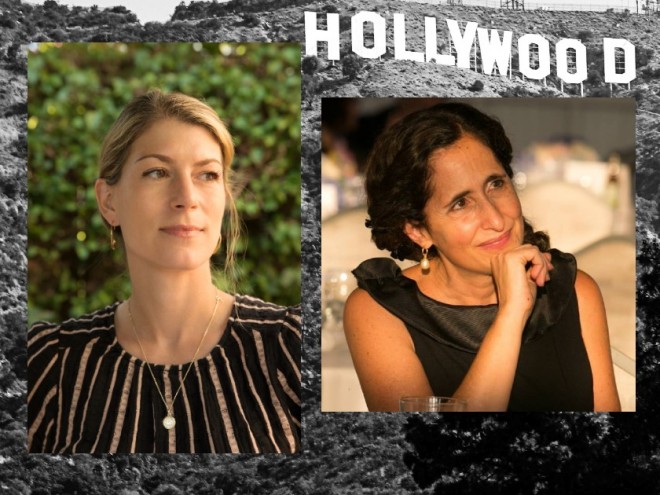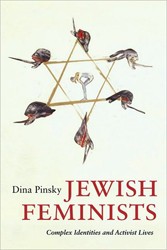Salka Viertel (1889−1978) was a European stage actress before coming to Hollywood with her husband in 1928, where she had a relatively successful career as a screenwriter (‘relatively’ refers to her handicaps working as a woman, a foreigner, and a scriptwriter largely identified with a single star, Greta Garbo). Still, during her extensive career, her paychecks supported her own family, her family’s extended relations, and countless refugees. She was famous for her Sunday salons — sprawling open-houses welcoming new arrivals, old friends and even current lovers — salons that embodied her commitment to recreating the experience of home for those who had been forced to flee their own. Her careful introductions of newcomers to the more established, her old-world cakes and coffee — she fed physical and spiritual hungers. While neither Viertel nor her family were ceremonially Jewish, this idea of opening your home to strangers and the needy was her own way of being Jewish.
Donna Rifkind recounts Viertel’s life story following a fairly traditional chronological path, with useful endnotes and a sprinkling of photos. The one wrinkle, which readers discover fairly early, is that Viertel published her ownmemoir in 1969 called, The Kindness of Strangers. While it went out of print fairly quickly, it was just republished (with an afterword by Rifkind) earlier this year, giving readers direct access to Viertel’s wit and the urgency of her authentic voice. Reading the biography and the memoir side by side, there’s no contest. Viertel was a gifted writer and, being ruthlessly self-aware, she did a great job telling her own story.
This leaves readers wondering: with limited time at hand, is there value to reading Rifkind, rather than Viertel herself? There are compelling arguments made in favor of just the biography or both. Viertel spent years working on her memoir before it was published in 1969, mostly in seclusion in Switzerland, far from the upheavals of second wave feminism. Rifkind’s biography, written after decades of feminist scholarship and a couple years of the #MeToo movement, gives perspective on the realities of the Hollywood power structure. While Viertel was thirty-nine and therefore not “casting couch” material by the time she arrived in Hollywood, she was a woman, and women still had to curry male egos to get work in the studios, even as they were the backbone of the industry workforce. Viertel, in survival mode, focused on teaching herself to cope.
Rifkind also fleshes out the fascinating stories of Viertel’s inner circle. Having read the biographies and memoirs of Thalberg, Cukor, Isherwood, Garbo, and many others, she can see dimensions to their relationships that Viertel could not. Having studied the rise of fascism in Germany, American policies on immigration, and House Un-American Activities Committee’s surveillance and intimidation techniques, Rifkind learned of realities that Viertel could only suspect. With hindsight, Rifkind could see the impact of Viertel’s hospitality, her financial and moral support, on the lives and careers of so many refugees to Hollywood in the 30s and 40s. She gives context to what Viertel experienced.
So yes, Rifkind’s account does overlap Viertel’s, but read them both. It’s simply an embarrassment of riches.
Bettina Berch, author of the recent biography, From Hester Street to Hollywood: The Life and Work of Anzia Yezierska, teaches part-time at the Borough of Manhattan Community College.



